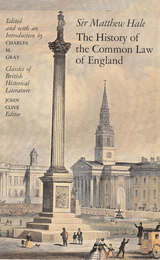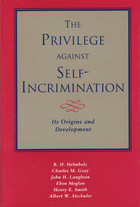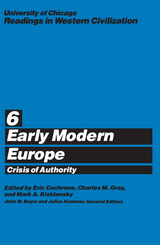
This book has a threefold purpose: to date and explain the beginning of legal protection of copyholders in courts of law and equity; to reconstruct and explain the first stage in the creation of a body of law relating to copyholds; and to provide a case study in sixteenth-century jurisprudence of a sort that may tend to illuminate larger questions about the judicial process in that period. Mr. Gray has based his book largely on manuscript law reports never before used.
Copyhold, and its ancestor, villein tenure, were originally not protected by the central law courts in England, with the result that the tenant was at the mercy of his lord. There has been considerable uncertainty and dispute as to when this state of affairs was changed. This book argues that the Chancery possibly did not extend protection to tenants until the end of the fifteenth century, and that the common law did not provide protection until the middle of the sixteenth century. Mr. Gray explains why and how the change was effected. Since the extension of common-law protection brought many collateral issues before the courts, the judges had to write a new chapter in the law of property. The authordescribes the perplexities they faced and the changing techniques used to meet them.
This history of a new field of law developed in the Elizabethan period has implications for general questions on the judicial process, such as the use made of precedents, the methods of interpreting statutes, and the character of legal analysis. An introduction provides the Medieval background and explains the technical language and fundamental concepts necessary for understanding the specific studies.


Each chapter of this definitive study uncovers what the privilege meant in practice. The authors trace the privilege from its origins in the medieval period to its first appearance in English common law, and from its translation to the American colonies to its development into an effective protection for criminal defendants in the nineteenth century. The authors show that the modern privilege—the right to remain silent—is far from being a basic civil liberty. Rather, it has evolved through halting and controversial steps. The book also questions how well an expansive notion of the privilege accords with commonly accepted principles of morality.
This book constitutes a major revision of our understanding of an important aspect of both criminal and constitutional law.

Individual volumes provide essential background reading for courses covering specific eras and periods. The complete nine-volume series is ideal for general courses in history and Western civilization sequences.
READERS
Browse our collection.
PUBLISHERS
See BiblioVault's publisher services.
STUDENT SERVICES
Files for college accessibility offices.
UChicago Accessibility Resources
home | accessibility | search | about | contact us
BiblioVault ® 2001 - 2024
The University of Chicago Press









